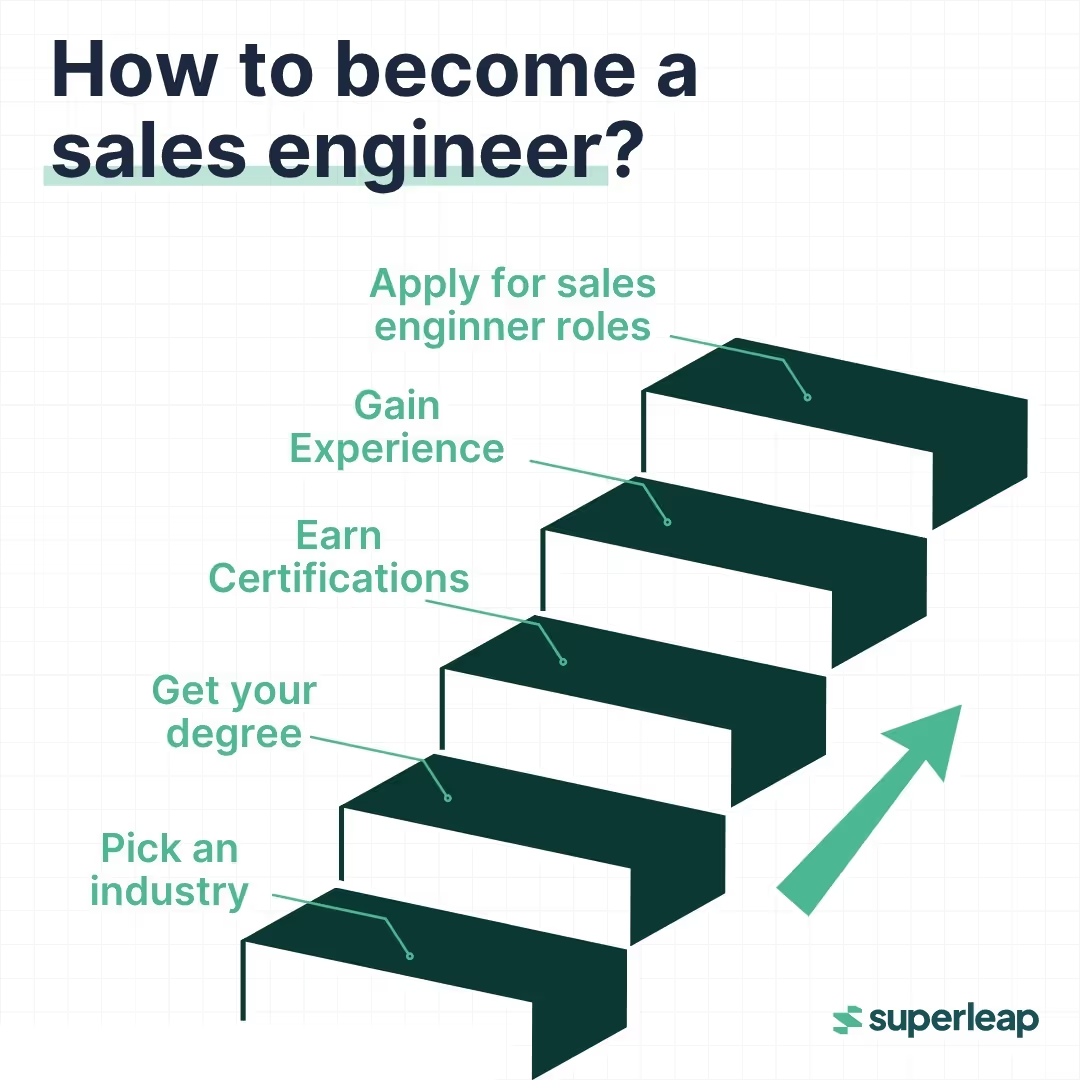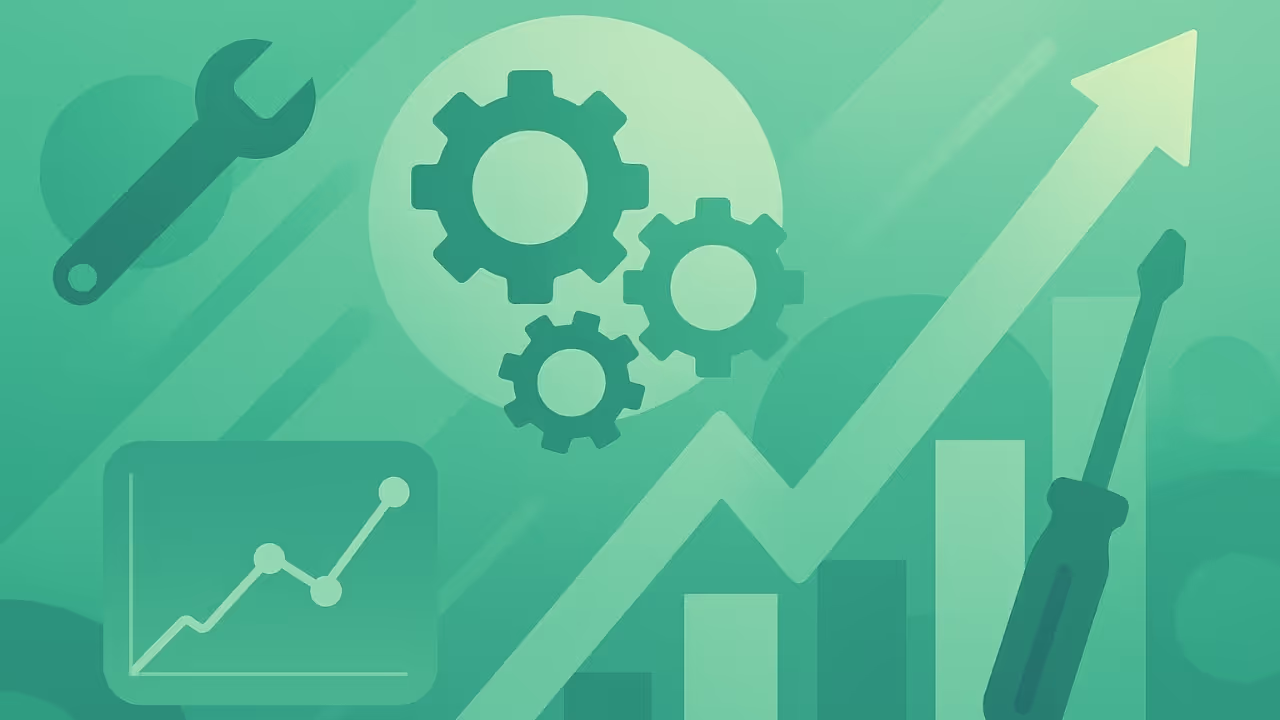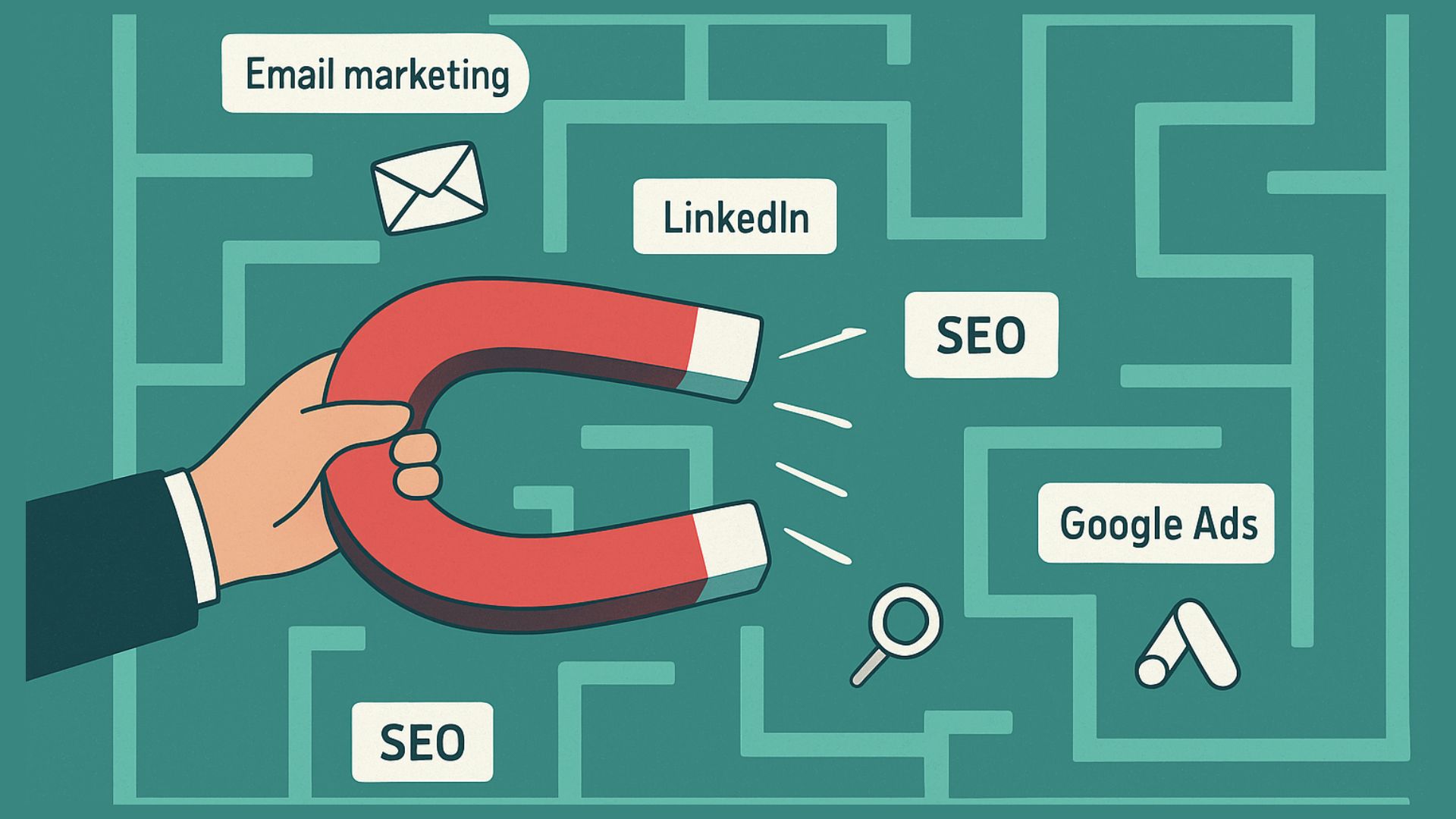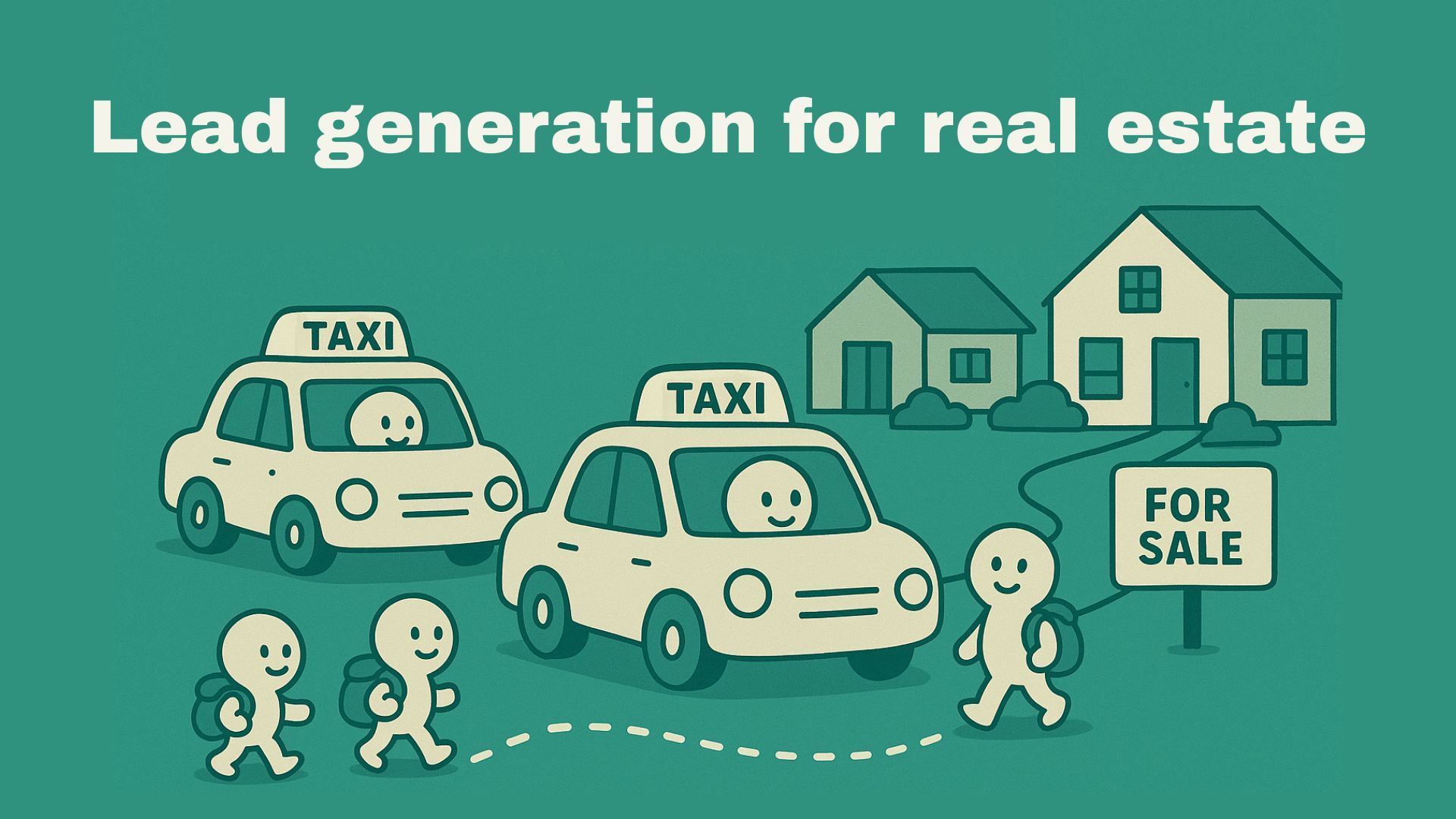

When most people think of a salesperson, they imagine someone who can talk their way into a deal, closing with their charm and persuasive skills. But there’s an important player behind the scenes in the field of sales who combines technical expertise with those same skills: that’s the sales engineer. They don't just talk about features, they also offer solutions that fit each customer's needs, and ensure that the product offers value.
In a world where technology and business solutions are increasingly complex, the sales engineer is the key to making those solutions comprehensible and relevant. They understand the product in-depth, speak the customer’s language, and have the ability to customize a solution that’s both effective and feasible.
Let's read more about sales engineers, shall we?
Who is a sales engineer?
Along with handling the technical aspects of the product, a sales engineer is also responsible for demonstrating the benefits of a product or service in a way that is easy for the customer to understand.
{{callout-1}}
Roles and responsibilities of a sales engineer
- Conducting product demos and presentations
- Assisting the sales team
- Resolving product usage-related issues
- Researching and developing new products
- Recommending improvements with regards to products
- Preparing sales reports and detailing expenses
- Discovering cross-selling opportunities while reviewing customers’ design needs.
- Acquiring in-depth technical knowledge of products
- Developing effective marketing strategies and tactics
- Meeting sales targets in accordance with KPIs
- Providing customer support with regards to product-related issues
- Engaging in negotiations with customers during the sales process
- Gathering feedback from customers regarding implementation and performance of products/solutions
{{callout-2}}
How to become a sales engineer?
Choose an industry of your choice
Research sales engineer positions across various industries and decide which field or speciality interests you the most. This could include anything from computer science to manufacturing to telecommunications.
Obtain a degree
Once you have picked the industry, decide what degree you want to obtain. The average sales engineer starts with a degree in computer science, engineering (electrical, mechanical, or civil), or a related technical field. Although it is not necessary to have one of these degrees to become a sales engineer, it does make it easier to get into this line of career.
Earn certifications
It’s useful to have a few certifications before you begin your career as a sales engineer.
Some of these certifications are:
- Certified Professional Sales Person (CPSP) certification
- Certified Sales Engineer (CSE) certification
- SMEI Certified Professional Salesperson (SCPS)
Gain some experience
Jeff Miller, a sales engineer at McHenry Roofing, emphasized the importance of sales experience during customer interactions and stated:
“You can be an encyclopedia about the product, but you’ll never understand the rebuttals to the product until you get in front of real potential clients,” Miller says. “You need to understand the problems of your clients before you can properly introduce your product as a solution.”
While earning certifications, try to look for opportunities in the field of your choice in order to gain experience with the kinds of products you’re interested in selling.
Apply for sales engineer jobs
After you’ve obtained a degree, gained relevant experience and certifications, the final step is to start applying. Do your research and figure out where you wanna work and do not hesitate to apply even if you lack some qualifications. Present the best version of you through your resume and try your luck.

Skills required to become a sales engineer
Communication skills
As a sales engineer, you often have to explain complex technical concepts in a simple and comprehensible way to customers, and good communication skills come in handy in such a situation.
Also, transparent communication helps build trust among customers.
How to improve this:
- Practice simplifying technical information for non-technical audiences.
- Join public speaking or storytelling workshops.
- Record yourself explaining product features and evaluate for clarity.
- Actively seek feedback from peers or customers after presentations.
Organizational skills
You’ll often have to work on multiple projects at once and the ability to maintain records and stay organized will help you work in a smooth manner.
How to improve this:
- Use productivity tools like Trello, Notion, or CRM platforms.
- Set daily and weekly task lists and prioritize them.
- Block time on your calendar for focused work.
- Regularly review and update project documentation.
Leadership skills
A good sales engineer should be able to work with and lead a team effectively.
How to improve this:
- Volunteer to lead small initiatives within your team.
- Learn basic leadership principles (check out books like Leaders Eat Last).
- Mentor junior teammates to develop your leadership presence.
Technical skills
Customers will often bring specific technical problems to you. A deep understanding of how the product works allows you to answer questions, identify pain points, and demonstrate how the solution can be applied in real-world situations.
How to improve this:
- Attend product training sessions and stay updated on releases.
- Shadow engineering or product teams to understand the backend.
- Participate in technical forums or product communities
Observant/Detail-oriented
The sales engineer role requires you to pay close attention to detail. You shouldn’t miss out on details while presenting a demo of a product, as this may create problems later if the customer brings something up.
How to improve this:
- Double-check all demos and documentation before presenting.
- Develop a checklist for common tasks and follow it rigorously.
- Slow down when reviewing technical specifications or requirements.
- Ask clarifying questions if anything is even slightly unclear.
Interpersonal skills
As a sales engineer, you’re required to build and maintain good relationships with both your customers and the sales team. Interpersonal skills come in handy when you have to build trust with either party.
How to improve this:
- Practice active listening—repeat back what others say to confirm understanding.
- Take note of personal details in conversations to show empathy and rapport.
- Join cross-functional meetings to improve internal collaboration.
- Read books like How to Win Friends and Influence People for interpersonal insight
Problem-solving skills
You often have to find solutions to complex problems of customers. This requires you to have a creative and analytical approach to solving problems.
How to improve this:
- Use frameworks like “Root Cause Analysis” or “5 Whys” for troubleshooting.
- Reflect on previous problems and how they were solved to identify patterns.
- Collaborate with engineering teams to understand how past technical issues were resolved.
- Keep a journal of challenging cases and how they were tackled.
Decision-making skills
A sales engineer often has to make key decisions during the sales process. For example, if you need to decide the pricing for a product, you will often need to be quick in your calculations and make a decision.
How to improve this:
- Analyze past decisions for outcomes and areas to improve.
- Practice quick mental math and estimation for pricing discussions.
- Discuss decisions with mentors to refine your judgement over time.
Project management skills
Sales deals can often be complex, requiring coordination between multiple teams (sales, engineering, product management, etc.). Being able to manage these relationships and timelines is an essential skill.
How to improve this:
- Learn basic project management tools like Asana, Monday, or Jira.
- Take an online course on project management fundamentals (e.g., Coursera, LinkedIn Learning).
- Create clear timelines with milestones for your sales process.
- Communicate updates regularly with stakeholders to maintain alignment.
Sales engineer vs Sales executive
Common sales engineer interview questions
Challenges that sales engineers face
Maintaining a balance between technical and sales roles
Solution: The key lies in finding the right balance between providing technical details while keeping things simple and comprehensible for the customer. This requires strong communication and presentation skills.
Understanding complex customer needs and requirements
Solution: Active listening, asking the right questions, and closely collaborating with the customer can help in clarifying their needs and creating a tailored solution.
Dealing with objections from customers
Solution: It’s important to stay patient, provide clear explanations, and sometimes even offer demos or case studies to solve their doubts.
Keeping track of product changes
Solution: Continuous learning, attending training sessions, and staying in close communication with the product and engineering teams is essential for staying on track.
Coordinating with multiple stakeholders
Solution: Strong project management skills and clear communication are necessary to keep multiple parties(sales, engineering, product management) aligned and ensure smooth collaboration.
Meeting sales quotas and targets
Solution: Setting clear priorities, managing time effectively, and collaborating closely with the sales team can help meet these targets.
Challenges in terms of customisation and integration
Solution: Collaborating closely with the engineering and support teams to plan the integration work early in the process can help manage customer expectations and reduce the chances of issues down the line.
Handling customer expectations
Solution: Transparent communication about what’s possible, what’s coming in future releases, and offering alternative solutions can help set realistic expectations.
“It does not matter how good a presenter you are; if you can't address the fundamental features of the product you are demonstrating, you cannot increase your sales.”, says Jay Kiros, author of the book “7 Rules of Sales Engineering.”
Sales engineer salary
The estimated total pay for a sales engineer is ₹7 Lacs per year, with an average salary of ₹6 Lacs per year. This number represents the median, which is the midpoint of the ranges and based on salaries collected from various users.
The estimated additional pay is ₹1 Lac per year. Additional pay could include cash bonuses, commissions, tips and profit sharing.
Heading text
Nunc sed faucibus bibendum feugiat sed interdum. Ipsum egestas condimentum mi massa. In tincidunt pharetra consectetur sed duis facilisis metus. Etiam egestas in nec sed et. Quis lobortis at sit dictum eget nibh tortor commodo cursus.
Odio felis sagittis, morbi feugiat tortor vitae feugiat fusce aliquet. Nam elementum urna nisi aliquet erat dolor enim. Ornare id morbi eget ipsum. Aliquam senectus neque ut id eget consectetur dictum. Donec posuere pharetra odio consequat scelerisque et, nunc tortor.
Nulla adipiscing erat a erat. Condimentum lorem posuere gravida enim posuere cursus diam.






.svg)
